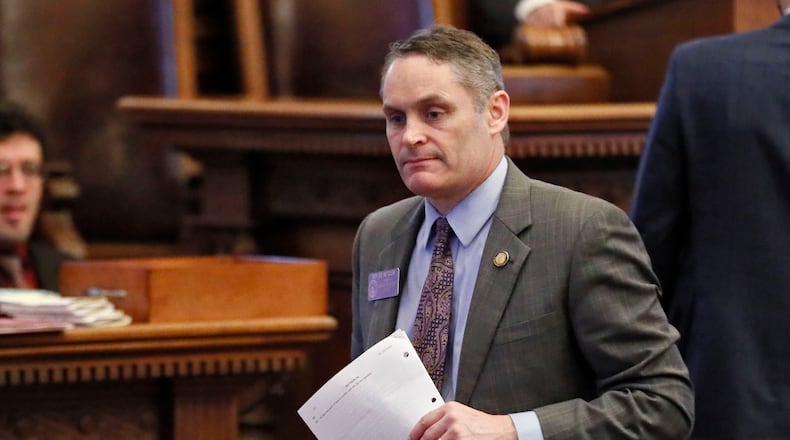Hospitals and nursing homes couldn’t ban family from visiting loved ones during health emergencies under a proposal filed by the chairman of the Georgia House Science and Technology Committee.
The bill by Rep. Ed Setzler, R-Acworth, would keep hospitals and nursing homes from getting or renewing a license to operate if they put a policy in place to keep visitors away from patients during a “declared public health emergency,” like the current one for the COVID-19 pandemic. If it becomes law, it would go into effect July 1.
“Virtually every family has a loved one that, in the last year, has been hospitalized or in a long-term care facility where they are completely isolated from any contact with their loved ones,” Setzler said.
“This has put extraordinary stress on families, this has put extraordinary stress on our sickest, most vulnerable citizens, and this has actually put tremendous stress on nurses and health care workers who benefit from the presence of family members at their patients’ bedsides supporting the medical care they provide,” he said.
State Rep. Mark Newton, an Augusta Republican and emergency physician, and House Republican Caucus Chairman Matt Hatchett, a Dublin Republican and an administrator at Mercer University, are co-signers on the legislation.
When the pandemic reached Georgia in March, hospitals and nursing homes began to deny visitation at their facilities. Gov. Brian Kemp in September eased guidelines, banning visitation only in health care facilities with COVID-19 cases or in counties with high infection rates.
House Bill 290 would allow at least two family members or friends to visit patients for no less than two hours each day. The bill would also prevent anyone from suing a health care facility if he or she got sick or was harmed because the hospital or nursing home allowed patients to receive visitors.
The legislation wouldn’t supersede an emergency order from the governor, but it would require the governor to explicitly state that visitation was not allowed.
“HB 290, in a balanced, measured way, affirms the humanity of patients in a way that many could have never foreseen before the COVID-19 pandemic,” Setzler said.
About the Author
Keep Reading
The Latest
Featured




